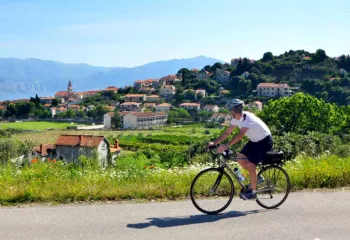Here's the first thing you should know: how you perform at high altitude can have very little to do with your fitness level. So let yourself off the hook for that one. Of course, being fit and healthy always increases your resilience and helps you recover more quickly from challenges. So it doesn't hurt. Get fit. But don't beat yourself up if you've done all your stair training and still find yourself breathless in Iquitos. Despite years of research in the field, what distinguishes star altitude performers from those who succumb is still mostly a mystery. And believe me, as a person who unfortunately falls into the latter category, I've looked into it. So since we can't ever know for sure how our bodies will respond to lower oxygen environments, the best thing we can do is to really prepare. There are phenomenal resources out there in terms of preparations for high-altitude adventure, many of which go into great depth about physiology. Here we'll simply take a high level look at some easy tips to help you best survive (and thrive) the next time you decide to get high.
First: drink a lot--of water that is! (Alcohol, particularly in excess, can really slow you down at altitude. Not to mention that its intoxicating effects are intensified. Have you ever had a drink on an airplane?!) High altitude environments tend to be incredibly dry and if you aren't hydrating, you'll find your lips chapped and your energy flagging. A couple of substances that are often suggested as helpful with adjustment to altitude, like coca tea and Diamox pills, are unfortunately also diuretics. So if you're using either of these useful aids, you'll need to drink even more water. Second: eat light. Heavy meals can be hard to digest when your body is already struggling to adapt to a lower oxygen environment. Do yourself a favor and avoid heavy, cream-based food until you're sure that your body has adapted to the new conditions. Go easy on the extra helpings, particularly in the evenings. Third: move slowly. I can't emphasize this point enough. While you may feel good when you first land in Cusco at 11,200 feet, the altitude can sneak up on you. Don't race around the new city to see the sights until you have had at least a couple of nights under your belt. This will allow your body to acclimate.
And finally: ask for help! At the first sign of feeling not quite right (headache, nausea, vomiting, fatigue or sleep disturbances) check in with an expert. For more serious symptoms, immediate descent to a lower altitude is advised. Some medications can be helpful either before or after you begin to experience symptoms. It's a great idea to visit a travel doctor before your journey to seek expert advice on what may work for you. Commonly prescribed medications for supporting you at altitude include acetazolamide (Diamox) or dexamethasone (Decadron, DexPak). Many high-altitude destinations also have locally available alternatives such as coca tea, or commercial products like the mountain sickness medication in the Andes, Sorojchi. The sky looks clear from up high and the views are magnificent. Make sure you can take it all in and feel good while doing it by sticking to these simple tips. You won't regret it--and chances are, you'll come back for more.







